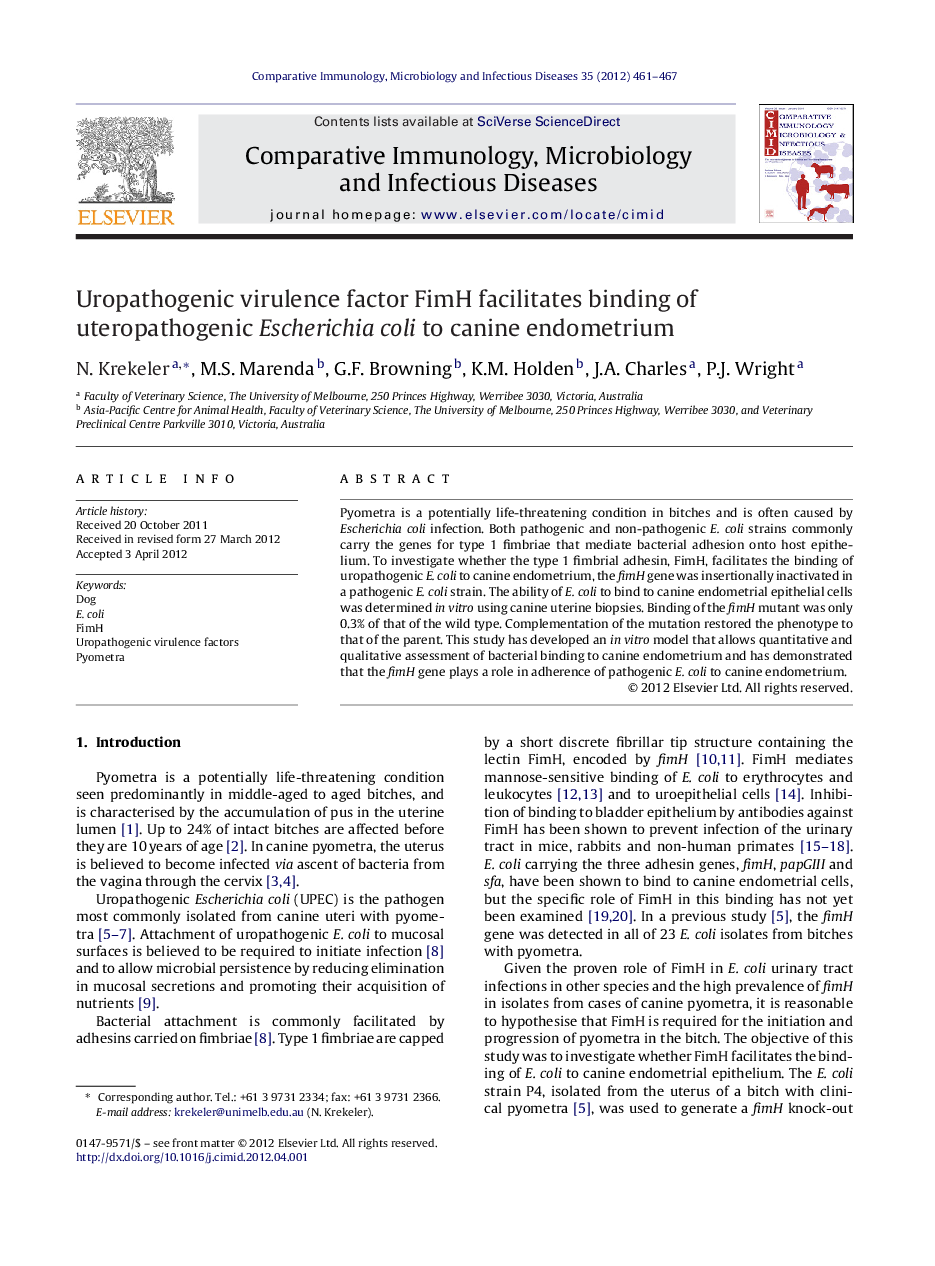| Article ID | Journal | Published Year | Pages | File Type |
|---|---|---|---|---|
| 2428227 | Comparative Immunology, Microbiology and Infectious Diseases | 2012 | 7 Pages |
Pyometra is a potentially life-threatening condition in bitches and is often caused by Escherichia coli infection. Both pathogenic and non-pathogenic E. coli strains commonly carry the genes for type 1 fimbriae that mediate bacterial adhesion onto host epithelium. To investigate whether the type 1 fimbrial adhesin, FimH, facilitates the binding of uropathogenic E. coli to canine endometrium, the fimH gene was insertionally inactivated in a pathogenic E. coli strain. The ability of E. coli to bind to canine endometrial epithelial cells was determined in vitro using canine uterine biopsies. Binding of the fimH mutant was only 0.3% of that of the wild type. Complementation of the mutation restored the phenotype to that of the parent. This study has developed an in vitro model that allows quantitative and qualitative assessment of bacterial binding to canine endometrium and has demonstrated that the fimH gene plays a role in adherence of pathogenic E. coli to canine endometrium.
